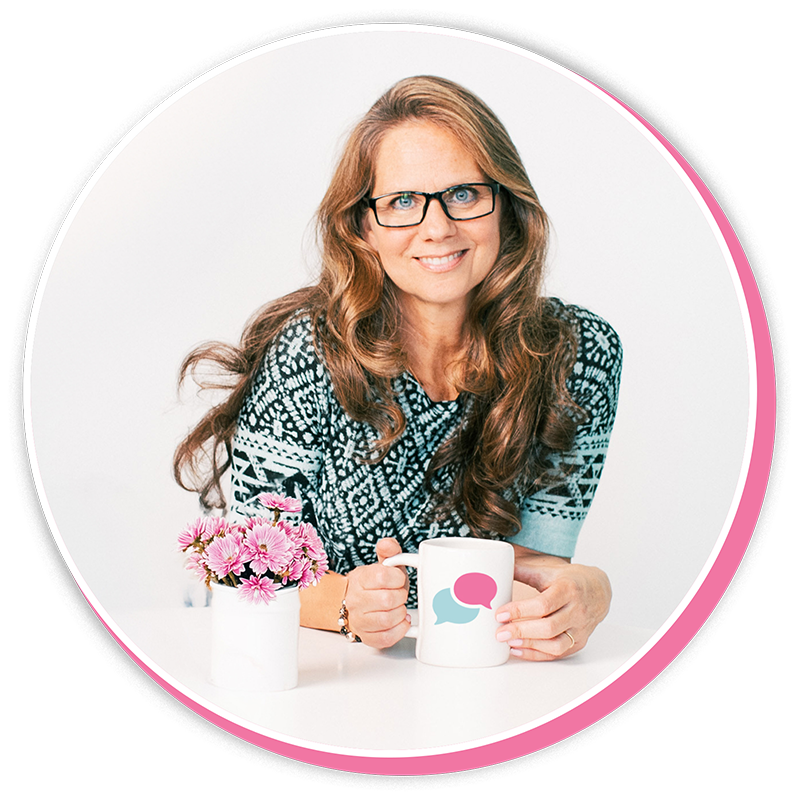Stop Yelling & Get Kids to Listen
Join hundreds of moms who are already learning the proactive ways to make their homes fight-free!

Join hundreds of moms who are already learning the proactive ways to make their homes fight-free!

Parenting Without Giving a F^ck >>> [BUY THE BOOK NOW]
Every day hundreds of parents sit down at their computer and search for ways to parent without yelling. Most parents want to stop yelling, but find it difficult to do.
You probably feel completely justified in yelling. I know that’s exactly how I felt when I walked into my first parenting class. I had a lot on my plate. Four kids (triplets included) and husband at war? Who wouldn’t be yelling.
But during my first parenting class, the teacher said three words that cut right through my ego, “Is it working?”
At that moment, I realized that yelling wasn’t working.
Yelling is a very short term solution to solving problems. It creates a negative environment, feelings of guilt and shame, and long term problems for kids.
My realization that yelling wasn’t working for me began my journey of being able to parent without yelling, improve myself, and become a parenting mentor. That’s why I’m so excited to share the wisdom I’ve gained over the years. The truth is, you can’t just simply want to stop yelling. You need tools, resources, and a plan.
Today we’ll talk about the long-term effects of yelling and what you can start doing TODAY to get more peace and harmony in your home.
You lose your temper once and a while — you’re human after all. But did you know that yelling at your kids on a regular basis can negatively affect their mental, emotional, and physical health?
You find yourself yelling because you’re angry, frustrated, overwhelmed, and powerless in a situation where your kids are misbehaving.
The good news is that you can learn different ways to handle these feelings. When you start handling difficult situations more positively, you’re modeling appropriate behavior for your family.
It’s like I always say: change yourself, and your child changes.
Before learning effective parenting techniques without yelling, it’s important to understand the long term effects yelling can have on kids.
Studies have shown that kids who were yelled at actually had an increase in negative behavior over the course of a year. Researchers also discovered that their brain develops differently when they are continually yelled at by parents and other caregivers. Their brain processes negative stimuli faster and more permanently. As a result, some kids develop depression or anxiety. In severe cases, yelling has been shown to cause chronic health issues like headaches or back pain1.
Yelling can have other psychosocial effects on kids such as low self-esteem, relationship difficulties and poor conflict resolution skills.
That said, it might even trigger guilty parent syndrome.
Remember, kids are adults in training. They depend on the adults around them to show them how to handle stressful and overwhelming situations. Yelling simply doesn’t work.
Yelling is a short-term, ineffective solution to misbehavior. Prevention is the key to promoting positive behavior. If you want to learn to parent without yelling, start by setting expectations.
First, establish your basic rules and communicate them clearly to your kids. Once expectations are communicated, this serves as a reference point when you need to reinforce them.
But first, a word of caution: don’t go too high or too low with setting expectations. (This is a delicate balancing act for parents). Being too strict or too loose can be confusing to kids. But all expectations should be realistic and achievable for your kids at their stage of development.
Begin to increase expectations as kids are ready. To reduce frustration, expectations should only be increased when the child has already satisfied what was expected of them in the beginning.
With the latest parenting research showing how yelling at your kids can have long lasting effects, let’s discuss some easy, helpful tips to use when you’re feeling frustrated.
Create a system to let your child know their behavior is unacceptable. This reinforces your expectations while giving them time to correct their behavior. Since kids are adults in training, they often need guidance and a warning serves as a nice reminder.
Parenting in advance is being proactive, and preparing yourself by taking action before conflicts arise. Start by taking an inventory of your day. When do you find yourself yelling the most?
Is it in the morning, rushing to get everyone out the door? Can you break the pattern by getting up earlier in the morning so you feel prepared to handle the routine? Can you get a few more tasks done in the evening so the morning isn’t rushed?
It’s easy to place blame on your circumstance, or even your kids when you’re in the habit of yelling. After all, if they weren’t acting this way, you wouldn’t be yelling, right?
Believe me, I know. When I wasn’t getting the results I wanted with my kids, I served blame up on a silver platter. We blame others to feel justified or to ease our guilt. But blame will only keep you in the cycle you are trying to break. If you’re trying to parent without yelling, start by getting rid of guilt, taking ownership of your choices, and practicing new ways to handle frustrating situations.
Most punishment is pointless unless you are using natural consequences. For example, if your house rule is that your child puts all the toys away and they leave their toys scattered all over the floor, the toys get taken away. This is a natural consequence.
You can have a talk with your child, reinforce the expectations and when they get the toys back, they have a choice to make – they can leave their toys out again or they can put them away. If you give the toys back and they leave them out again, the toys get taken away for longer. Eventually, your child will learn there is a connection between their behavior and playing with their toys.
The same goes for your teen. If they return home after their 10:00 pm curfew, a natural consequence could be that their curfew becomes earlier until they can get home on time.
No need for yelling or getting emotional. The expectations were communicated and the natural consequences came based on their choices.
Repeat after me: I’m Only in Charge of Me; I’m Not in Charge of You.
This is an important mantra. As a parent, you are only in control of yourself and how you react. This mantra releases you from yelling or needing time outs. You are only responsible for creating and communicating the rules. If kids know the consequence of not following the rules ahead of time and they don’t follow the rules they will be the author of the consequence.
Learning how to parent without yelling isn’t always easy but it can be done and it’s so worth it! In the beginning, you’ll likely revert back to old ways of yelling once in a while. But stay the course, make small changes every day, and course correct when you make mistakes.
If a disagreement gets heated it’s ok to take a breather and walk away. If you give yourself a break, you’ll come back rational and clear-minded to discuss the problem.
Most parents today are struggling with a lack of support. If you feel this way, you’re definitely not alone!
If you find yourself yelling because you’re struggling with your mental health or are just simply overwhelmed.
Do you have a specific question you need help ith? Do you need more help to learn to parent without yelling? As always, you can always ask me a question and I’ll be sure to get your questions answered on the Ask Mom Answers section of my website.
Want to use a more balanced approach? Why not try the balanced parenting style?
More information:
5 Serious Long-Term Effects Of Yelling At Your Kids. Healthline. 2017.

Sue Donnellan is a parenting coach who supports parents of kids ages 2 to 20, specializing in turning chaos into calm through proactive communication strategies. A mom of four (including triplets), military wife, entrepreneur, and author, Sue’s approach combines Montessori principles with proven methods to help families stop yelling, start listening, and create a thriving home environment.
Available in Kindle, Audiobook, and Paperback
Download our free resources for more effective parenting!
How do you go about setting goals for parenting? Well, the answer is to think small and be realistic. That’s right - bigger isn’t necessarily better when it comes to parenting...
When it comes to parenting, there is no one-size-fits-all approach. Every child and every family is different, and so the way we parent needs to be tailored accordingly....
In the United States, parenting styles have changed dramatically over the past few decades.With new studies and research emerging every day, it can be hard to keep up with what...
If you’re ready to have more CALM in your household, let’s chat about how to make that happen.
In just 30 minutes, you’ll get at least one great idea and if it feels like a fit, I’ll share how we can work together.

